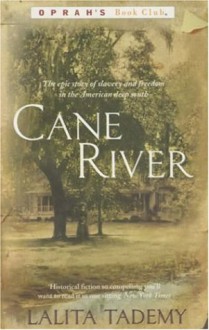Lalita Tademy's riveting family saga Cane River chronicles four generations of women born into slavery along the Louisiana river. It is a tale about the blurring of racial boundaries: great-grandmother Elisabeth notices an unmistakable "bleaching of the line" as first her daughter Suzette, then...
show more
Lalita Tademy's riveting family saga Cane River chronicles four generations of women born into slavery along the Louisiana river. It is a tale about the blurring of racial boundaries: great-grandmother Elisabeth notices an unmistakable "bleaching of the line" as first her daughter Suzette, then her granddaughter Philomene and finally her great-granddaughter Emily choose (or are forcibly persuaded) to bear the illegitimate offspring of the area's white French planters. In many cases these children are loved by their fathers, and their paternity is widely acknowledged. However, neither state law nor local custom allows them to inherit wealth or property, a fact that gives Cane River much of its narrative drive. The author makes it clear exactly where these prohibitions came from. Plantation society was rigidly hierarchical. The only permissible path upward for hard-working, ambitious African Americans was indirect. A meteoric rise, or too obvious an appearance of prosperity, would be swiftly punished. To enable the slow but steady advance of their clan, the black women of Cane River plot, plead, deceive and manipulate their way through history, extracting crucial gifts of money and property along the way. In her introduction, Tademy explains that as a young woman she failed to appreciate the love and reverence with which her mother and her four uncles spoke of their lively Grandma 'Tite (short for "Mademoiselle Petite"). She resented her great-grandmother's skin-colour biases, which were as much a part of Tademy's memory as were her great-grandmother's trademark dance moves. But the old stories haunted the author, and armed with a couple of pages of history compiled by a distant Louisiana cousin, she began to piece together a genealogy. The result? Tademy eventually left her position as vice president of a Fortune-500 company and set to work on Cane River, in which she has deftly and movingly reconstructed the world of her ancestors. --Regina Marler, Amazon.com
show less






 20 years ago
20 years ago